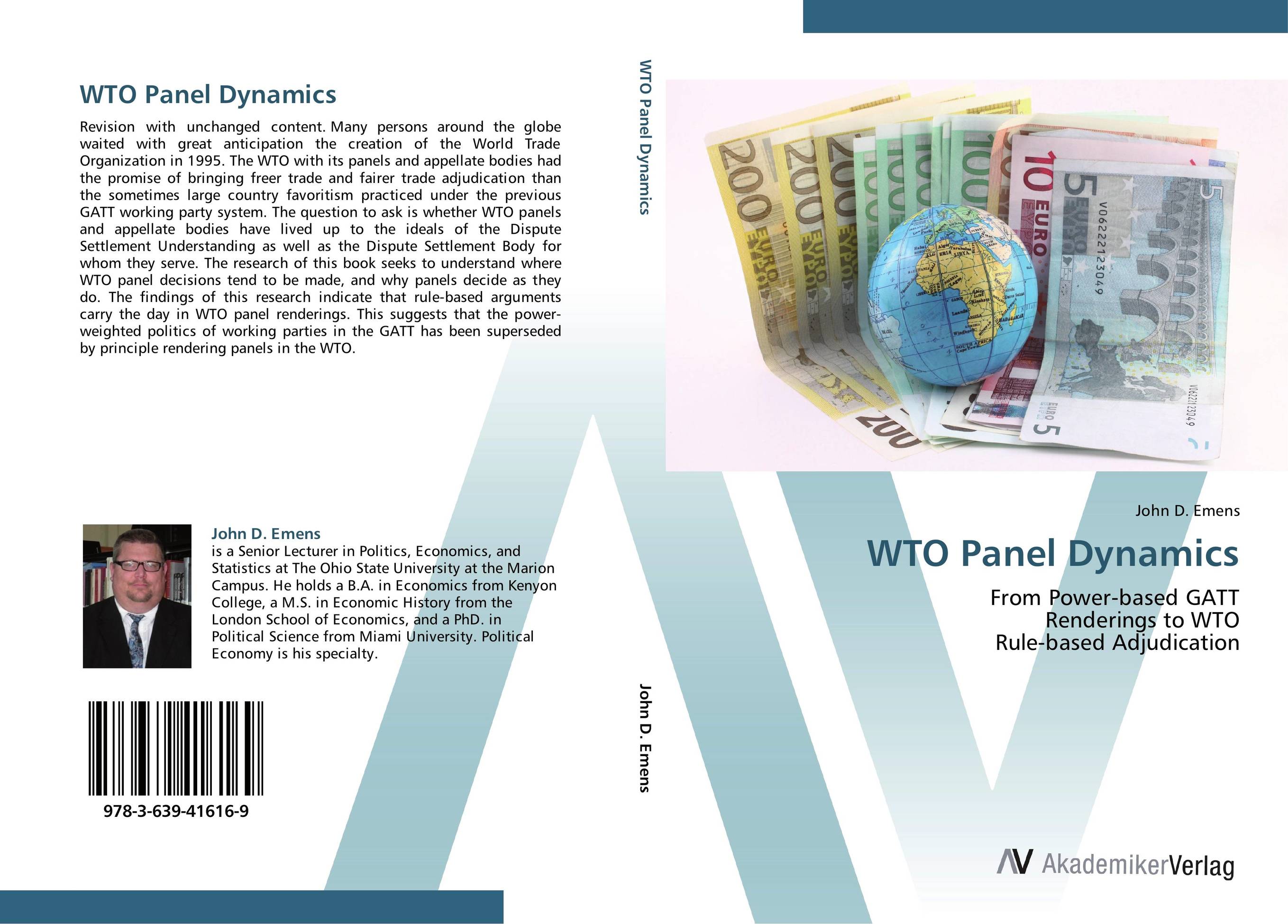| Поиск по каталогу |
|
(строгое соответствие)
|
- Профессиональная
- Научно-популярная
- Художественная
- Публицистика
- Детская
- Искусство
- Хобби, семья, дом
- Спорт
- Путеводители
- Блокноты, тетради, открытки
WTO Panel Dynamics. From Power-based GATT Renderings to WTO Rule-based Adjudication

В наличии
| Местонахождение: Алматы | Состояние экземпляра: новый |

Бумажная
версия
версия
Автор: John D. Emens
ISBN: 9783639416169
Год издания: 2012
Формат книги: 60×90/16 (145×215 мм)
Количество страниц: 176
Издательство: AV Akademikerverlag
Цена: 39195 тг
Положить в корзину
Позиции в рубрикаторе
Сферы деятельности:Код товара: 481410
| Способы доставки в город Алматы * комплектация (срок до отгрузки) не более 2 рабочих дней |
| Самовывоз из города Алматы (пункты самовывоза партнёра CDEK) |
| Курьерская доставка CDEK из города Москва |
| Доставка Почтой России из города Москва |
Аннотация: Revision with unchanged content. Many persons around the globe waited with great anticipation the creation of the World Trade Organization in 1995. The WTO with its panels and appellate bodies had the promise of bringing freer trade and fairer trade adjudication than the sometimes large country favoritism practiced under the previous GATT working party system. The question to ask is whether WTO panels and appellate bodies have lived up to the ideals of the Dispute Settlement Understanding as well as the Dispute Settlement Body for whom they serve. The research of this book seeks to understand where WTO panel decisions tend to be made, and why panels decide as they do. The findings of this research indicate that rule-based arguments carry the day in WTO panel renderings. This suggests that the power-weighted politics of working parties in the GATT has been superseded by principle rendering panels in the WTO.
Ключевые слова: WTO, GATT, World Trade Organization, WTO Panels, Dispute Settlement Understanding (DSU), Appellate Bodies, Dispute Settlement Body (DSB), Trade Dispute, Trade Dispute Resolution, Quotas



